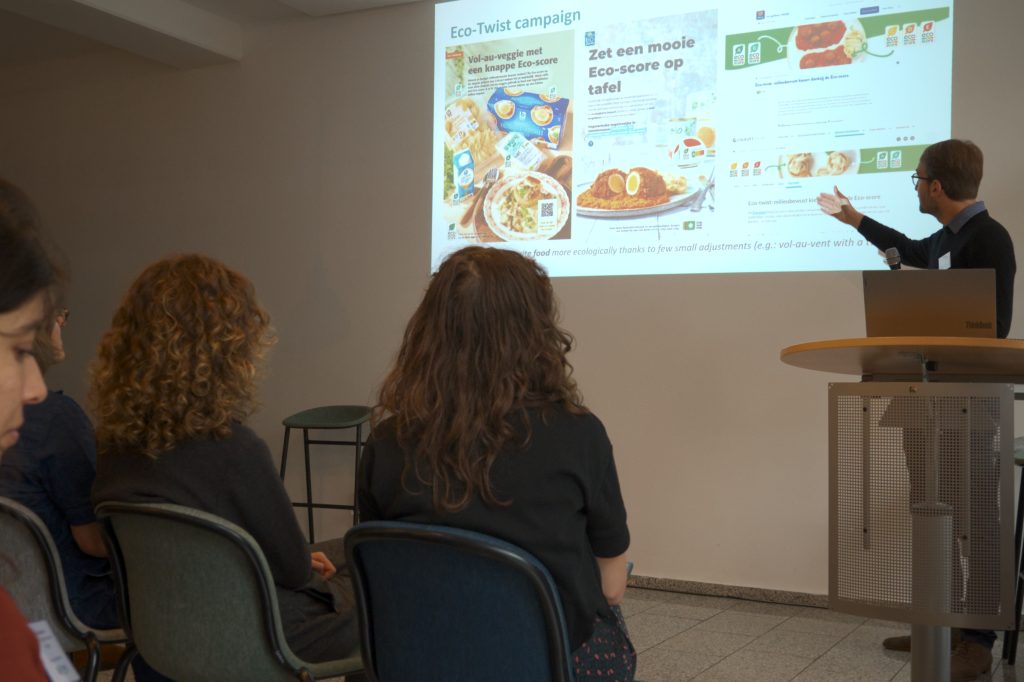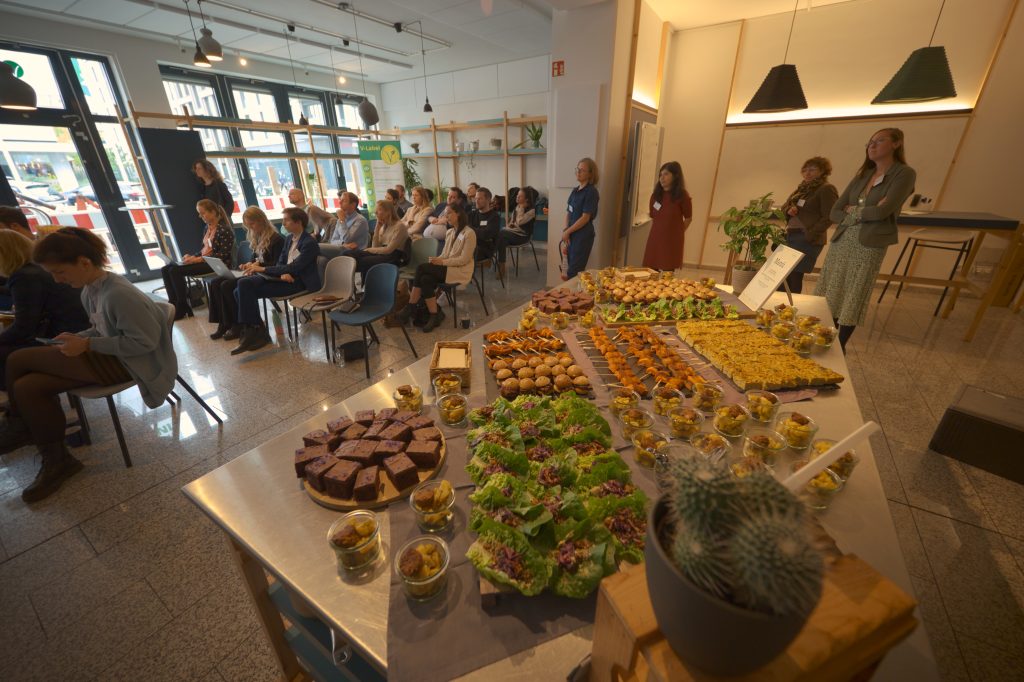By Billy Nicholles, Communications & Corporate Engagement Support Specialist
European retailers gather in Berlin to discuss their role in the future of food
On October 24 2023, I attended ProVeg International’s inaugural Retailer Roundtable at the ProVeg Incubator Office in Berlin. Over 40 market leaders from Germany, Belgium, the Netherlands, Switzerland, Austria, and Poland gathered with other retail and food system experts to discuss one important question: How can retailers work together to facilitate a protein transition towards a more sustainable food system?
In this New Food Hub exclusive, I’ll summarize the main themes, discussion points, ambitions, and outcomes of the event. From bold commitments to innovative new strategies, the potential to realize the future of food was palpable.
If you want to learn more about how you can be part of the retailer protein transition, contact ProVeg Corporate at [email protected] to speak to our specialist team.
Why retailers?
With industry leaders from across Europe in attendance, one point was abundantly clear: retailers hold a powerful and important role in facilitating a protein transition towards a more sustainable food system. Retailers have a unique position in the value chain as the interface between producers and consumers, and have the power to influence consumer purchasing choices and habits.
This power comes with responsibility – retailers should enable consumers to easily make ethical, sustainable, and healthy food choices. In short, retailers are not just observers but active changemakers in this crucial transition.

Who is the future consumer of food?
A day of sharing insights, opportunities, and best practices began with a look into the future, with ProVeg Consumer and Market Research Manager Elsa Guadarrama presenting consumer data from the EU Smart Protein Project on the future of plant-powered retail. The role and responsibility of retailers was made clear, here: 97% of global consumers want to live a sustainable lifestyle, but only 13% are actively changing their behavior.1 Retailers can enable consumers to make the sustainable choices they want to make.
The consumer data also pointed towards a clear and growing demand for plant-based alternatives, and spelled out this market demand in valuable detail. If you want to see how the plant-based market is evolving, and the consumer demographics that are driving it, you can find the answers in the newly released Smart Protein Report 2023.
How to propel the protein transition:
Colruyt Group stood out as a great example of a retailer adopting a holistic strategy to promote sustainable, plant-based foods. Colruyt Group is focussing on promoting the protein transition in a variety of ways. They’ve partnered with ProVeg’s Veggie Challenge, which encourages (and with Colruyt Group’s support further enables) consumers to eat a more plant-based diet for 30 days, and build healthy, sustainable eating habits.
But they are also reshaping the very environment where food choices are made. By providing recipe suggestions and cooking workshops, they elevate consumer knowledge about plant-based diets. In-store tasting stalls become experiential touchpoints, inviting shoppers to discover the appeal of plant-based options first hand.
On top of this, they’re also developing an ‘eco-score’ system on thousands of their products to empower consumers to make more sustainable eating choices.

These creative combined efforts demonstrate the ability of retailers to tackle multiple aspects of the shopping environment, making changes that empower consumers, who can increasingly shop with the knowledge and the ability to make sustainable purchasing choices.
Monitoring progress: The protein split
Our group of retailers certainly demonstrated creativity in their efforts to promote plant-based products, but what they also voiced a need for is certainty. How can they know what changes are impactful, cost-effective, and ultimately successful in increasing plant-based purchasing habits?
Enter the WWF and ProVeg, and their methods for monitoring retailers’ ‘Protein Split’ – that is, the proportion of plant-based to animal-based products on offer at a given retailer. Knowing your protein split is the one of the first key steps to developing a protein transition strategy, with the data allowing retailers to target and monitor the effectiveness of interventions.
Fortunately, both ProVeg and the WWF have developed methodologies to determine this all important split. ProVeg’s protein tracker, for example, has already been adopted by a variety of retailers including Lidl and Plus. In review of the protein tracker, Lidl said:
“Thanks to our understanding of our protein split, we’ve been able to establish a goal for our protein sales. This allows our colleagues to take even more concrete steps towards the protein transition.”
If you want to get help monitoring your protein split, get in touch with ProVeg Corporate, at [email protected].
The power of commitments:
Monitoring your protein split allows retailers to focus on one of the most important aspects of a retailer protein transition strategy: commitments. Commitments set concrete targets, focus energy, and clearly demonstrate the direction of travel.
A big takeaway from this roundtable was that retailer commitments to advance their protein transition were in no short supply. A striking example of this was Lidl’s already-achieved commitment to reach price parity. As a result of this commitment, almost all of Lidl’s plant-based own-brand Vemondo products are no more expensive than the comparable products of animal origin.
With the price premium on many plant-based products being a key barrier to consumer adoption, this huge commitment paves the way for a more level playing field. Plant-based and animal-based products can now compete more equally, allowing consumers to shop sustainably without paying a higher price.

Albert Heijn has similarly pledged to improve their protein split in the coming years. Having launched a new plant-based range in September 2023, they have committed to make 60% of all protein sold in its stores plant-based by 2030.
These commitments are excellent templates that retailers should seek to build and expand on. When it comes to the protein transition, time is of the essence. To satisfy consumers, save our planet, and keep up with the competition, these commitments should be bold.
Conclusion: Ambition and responsibility
ProVeg’s Retailer Roundtable demonstrated the hard work going on across the retail sector to transition to a more sustainable food system. There was a sense of ambition and responsibility in the air – this now needs to be followed with collaboration, commitment, and action.
There’s no doubt that retailers are on a path to food system transformation in the coming months and years. To be part of that change, speak to our team at [email protected], and look out for the Retailer Roundtable 2024!




